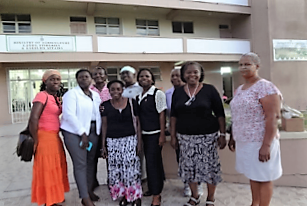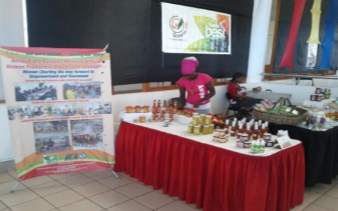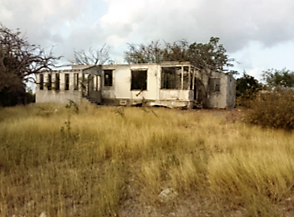

The Antigua and Barbuda Network of Rural Women Producers (ANBNROP) is a chapter of the regional body of the Carib-bean Network of Rural Women Producers (CANROP). ANBNROP was established in October 2013 with 10 women and presently 15 women are actively involved in the group; their ages range from 21-65 years. These women are currently engaged in producing a range of products from agricultural resources, such as jams, jellies, aromatic soaps, hot sauces, coconut oil, and pastries.

In November 2015, through technical assistance from the Inter-American Institute for Cooperation on Agriculture (IICA) Delegation in Antigua and Bar- buda, ANBNROP was able to secure a structure on a ¾ acre plot of land from the Government of Antigua and Barbuda (through its Ministry of Agriculture). This property has been made available under a 25-year lease agreement; the structure will be refurbished and transformed into a Central Commercial Agro-Processingn Facility. With this ‘agreement’ ANBNROP secured funds through two grants from the Global Environmental Fund (GEF) and the Caribbean Deve-lopment Bank (CDB)/Caribbean Technological Consultancy Services (CCTCS) Network, respectively.

Grant funding from GEF will assist the group with the refurbishment of the existing structure; while the grant from CDB/CCTCS will cover consultancy services/technical assistance in the following areas: Business Plan, Feasibility Study, Market Research, Operational Manual, and Plant Layout Design.
With the new facility, the business of ANBNROP is expected to develop and expand towards strengthening the agro-processing industry in Antigua and Barbuda, and promote the importance of agriculture and food security. Additionally, this facility will also serve as a medium in which students who are pursuing careers in agriculture, through the CXC examinations, can enhance their studies and research work under the specific areas of their schools’ agriculture syllabus.
In collaboration with its development partners (Ministry of Agriculture, the Bureau of Standards and the Ministry of Works), IICA will be pushing ahead with its work programme towards further expanding the local agro-processing industry to improve the social and economic welfare of women and the country on a whole.











